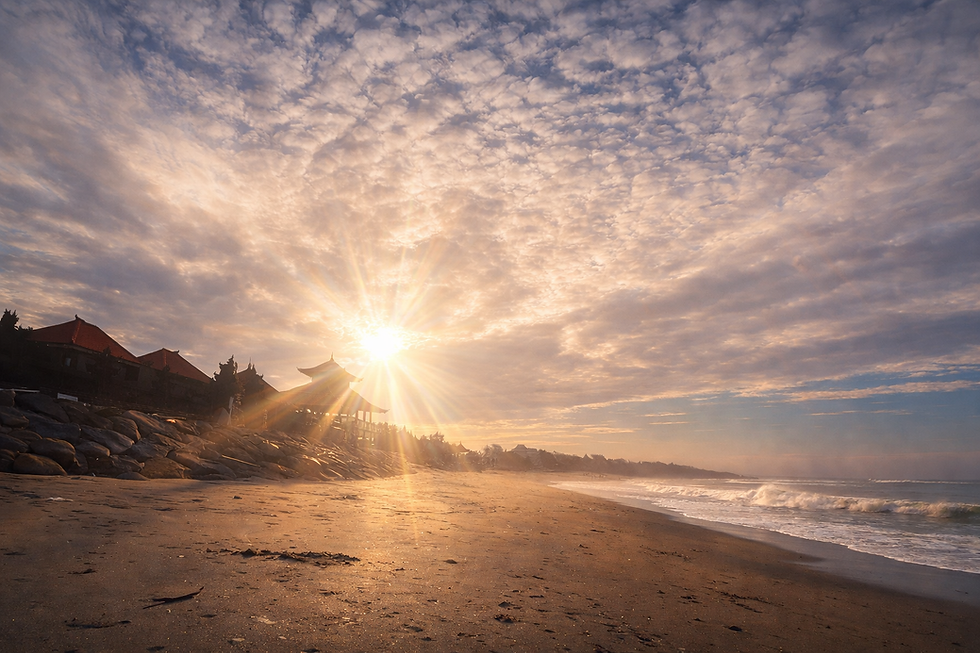The Village Within - Reclaiming Every Part of Ourselves
- Amber Howard
- Aug 5, 2025
- 3 min read
We speak often of the need for community. Of the village it takes to raise a child, to carry us through grief, to stand by us in celebration and sorrow. But what if the first village we must remember—before we go looking for it outside of us—is the one we’ve carried all along?
There is a village inside of you.
A whole and sacred gathering of selves.
The child who still dances barefoot in the dirt.
The teenager who raged at injustice and longed to be seen.
The protector who guards the heart with silence or sarcasm.
The mystic who dreams and communes with stars.
The mother who has loved with every drop of her being.
The elder who knows when to speak and when to wait.
Each one arrived at a moment when something was needed—love, safety, rebellion, expression, wisdom, rage. Each one shaped by experience, held in memory, encoded into the nervous system and the soul.
But we weren’t taught to tend to our inner village.
We were taught to exile it.
Be quiet. Be strong. Be productive. Be pleasing.
Don’t be too emotional. Don’t be too loud. Don’t be too soft. Don’t be too much.
We are taught to edit ourselves down to the acceptable few—project-manage our identities to fit the script. And when we inevitably break under the weight of it all, we search for healing “out there,” not realizing what we are truly seeking is a homecoming.
A return to the full council of our being.
Why We Abandon Ourselves
Colonized culture teaches us to fragment—to disconnect from any part of ourselves that doesn’t serve survival or external approval. The wild child who disrupts the order. The grieving one who lingers too long. The sensual one, the angry one, the tired one, the dreamer.
We exile them because we were taught they were dangerous.
But in truth, what’s dangerous is the silence we create in their absence.
Every part of us has a role. Every version of us holds wisdom. The child teaches us wonder. The elder holds perspective. The lover reminds us of beauty. The fool offers humility. The warrior defends our boundaries. The healer mends what was torn.
When we abandon parts of ourselves, we don’t become stronger. We become hollow.
Healing as Reunion
What if healing is not becoming someone new—but remembering who we’ve always been?
What if it’s gathering the scattered members of the village back to the fire and saying, “I’m ready to listen now”?
To live a created life is to know that wholeness is not perfection. It is inclusion. Integration. Collaboration. It is the profound courage to stop making any part of you wrong.
To lead a created life is to become the village elder within—the one who calls the council, makes decisions not from fear but wisdom, listens to each voice, and knows when to ask for help from beyond the village walls.
Sacred Inquiries
Take these with you, gently:
Who in your inner village is loudest? Who gets ignored?
What does your inner child still need that no one else has ever given?
What story does your protector tell, and what would it take for them to rest?
What might become possible if your elder spoke more often than your critic?
Which parts of you still think they have to earn their place?
A Village Ritual
Tonight, or any time you feel lost, try this:
Sit in stillness.
Close your eyes and imagine a fire burning in the centre of a great clearing.
One by one, call each part of you forward to sit around it.
No fixing. No judging. Just presence.
Let the child come, and the lover, and the one who’s tired.
Let the one who’s afraid sit close to the one who’s strong.
Let them see each other. Let them speak. Let them rest.
Then say to them,
“You belong. All of you. You are my village. And I am home.”
We go looking for community in the world because we feel the ache of separation.
But the first reunion is always within.
When we remember that…
We stop showing up fractured.
We stop performing strength.
We stop pretending we’re alone.
And from that wholeness, we begin to call the outer village back too.
Not from neediness, but from truth.
Not to fix us, but to celebrate the beauty of a life lived in belonging—
from the inside out.
.png)



Comments